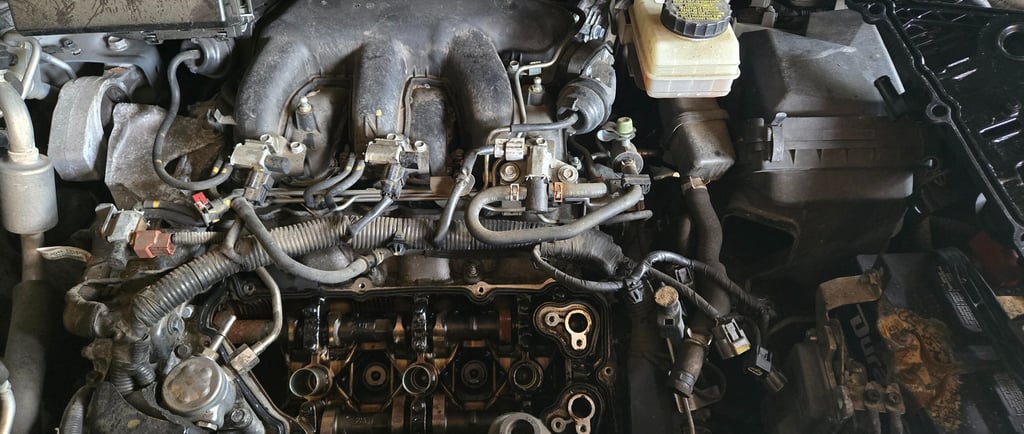The Lifeblood of Your Engine: Why Regular Oil Changes Matter
Why oil is important to your car's health, what to look for, and how to handle it
TIPS AND TRICKS
Michael Winkler
2/22/20252 min read


The Lifeblood of Your Engine: Why Regular Oil Changes Matter
Hey there, car enthusiasts and curious minds! Today, we're diving into a topic that's near and dear to every vehicle owner's heart: oil changes. You might think of it as just another routine task, but trust me, it's the unsung hero of car maintenance. Let's explore why keeping your engine's oil fresh is so important and how it affects your car's performance.
The Basics: What Does Oil Do?
Your car's engine is a complex machine with many moving parts. These parts need to be properly lubricated to avoid damage and ensure smooth operation. That's where motor oil comes in. It reduces friction, cools engine components, and helps keep everything running smoothly.
The Perils of Dirty Oil
Over time, oil breaks down and becomes contaminated with dust, dirt, and debris from the engine and the environment. When this happens, it can't do its job effectively. Dirty oil can lead to increased friction, overheating, and even engine damage. Imagine trying to run a marathon with sand in your shoes—ouch!
The Benefits of Regular Oil Changes
Prevents Engine Wear and Tear: Fresh oil reduces friction between the engine's moving parts, preventing wear and tear. This means your engine will last longer and run more efficiently.
Keeps the Engine Clean: Clean oil helps remove debris and sludge from the engine, preventing buildup that can cause corrosion and other issues.
Improves Gas Mileage: A well-lubricated engine runs more efficiently, which can improve your car's fuel economy. According to the U.S. Department of Energy, regular oil changes can improve gas mileage by 1-2%.
Cools Engine Components: Oil helps dissipate heat generated by the engine, preventing overheating and ensuring optimal performance.
Promotes Vehicle Longevity: Routine maintenance, including oil changes, can extend the life of your vehicle and increase its resale value.
The Consequences of Skipping Oil Changes
Neglecting oil changes can lead to a host of problems. Dirty oil can turn into sludge, blocking oil flow and causing vital engine components to overheat and wear out faster. This can result in costly repairs or even engine failure. In short, skipping oil changes is a recipe for disaster.
Fun Fact: Did You Know?
Did you know that synthetic oil can last longer and perform better than conventional oil? It's designed to withstand higher temperatures and resist breakdown, making it a great choice for high-performance vehicles.
Conclusion: Don't Skip the Oil Change!
Regular oil changes are a small investment that can save you big bucks in the long run. They keep your engine running smoothly, improve fuel efficiency, and extend the life of your vehicle. So, the next time you're tempted to skip that oil change, remember: your car will thank you!


